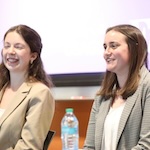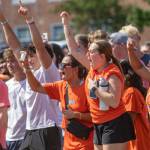
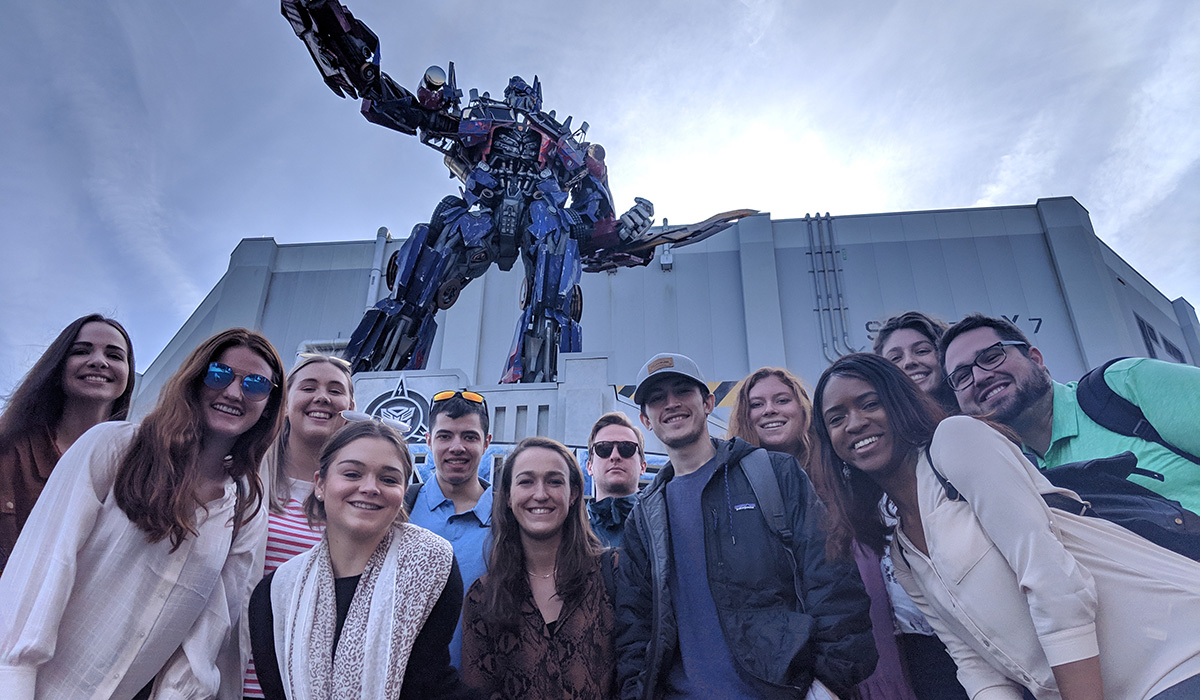
Student participation in high-impact practices has long been a hallmark of our Gettysburg College education. For example, from the Class of 2023, 76% of graduates completed at least one internship, 60% partnered with a faculty mentor on research, and 64% served in a leadership role on campus. Many pursued a combination of these activities and far more.
We are a community of doers.
The Gettysburg Approach empowers students to emerge as career-ready graduates, equipped with a foundation of expansive knowledge and the enduring skills most valued by employers and graduate schools. Today, Gettysburg College is proud to build on this institutional strength and make these transformative experiences even more accessible to Gettysburgians by guaranteeing a Career-Ready Experience for every student who participates in the Gettysburg Approach.
By participating in a Career-Ready Experience, students will apply the consequential education they’ve gained at Gettysburg out in the world and enhance their effectiveness in the workplace upon graduation.
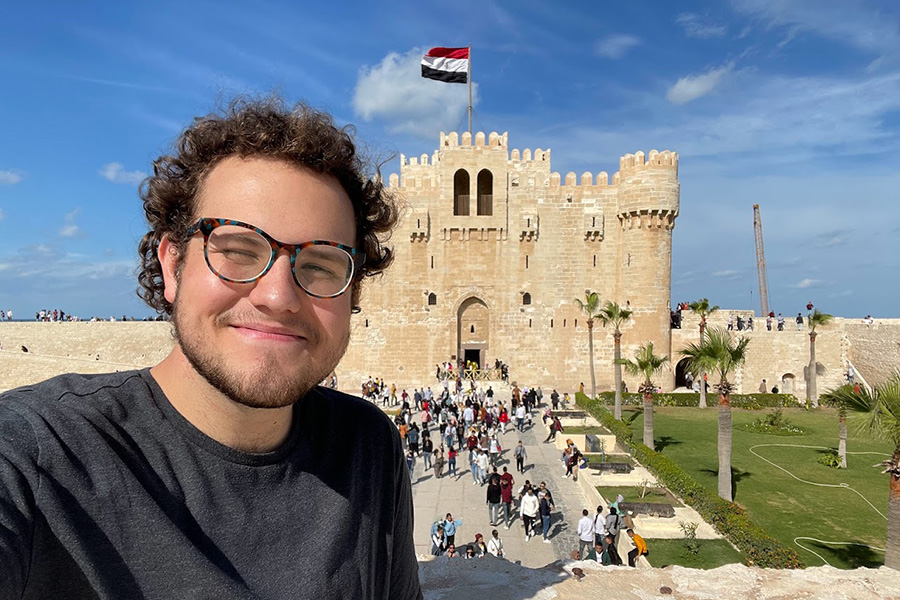
What is a Career-Ready Experience?
A Career-Ready Experience could include at least one of the following Guided Pathways experiences:
- Off-campus or on-campus internship.
- Working on a long-term Center for Public Service project.
- Global study and travel through the Center for Global Education.
- Campus leadership role.
- Faculty-mentored research.
“We are excited about the Career-Ready Experience and are confident that the skills students gain through them will make a tremendous difference during their time at Gettysburg College and beyond,” said Associate Dean of Co-Curricular Education Jim Duffy. “A Career-Ready Experience will help students connect what they learn in the classroom to graduate schools and the professional workplace by providing diverse, dynamic experiences to prepare them for a lifetime of career advancement and personal success.”
The Career-Ready Experience will typically happen during a student’s junior or senior year, and some students may choose to complete more than one experience. Students from the Class of 2028 are eligible to participate in a Career-Ready Experience by opting into the Guided Pathways, applying for a Career-Ready Experience by announced deadlines, and completing all participation requirements.
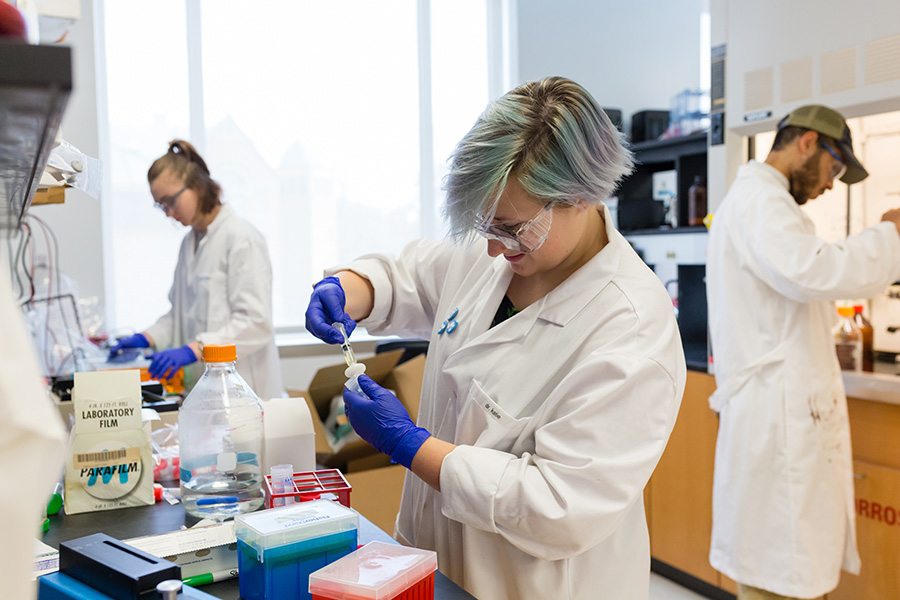
How will students select a Career-Ready Experience?
At Gettysburg, every student participating in the Guided Pathways receives a Personal Advising Team consisting of a faculty advisor, a co-curricular advisor, a career advisor, and an alumni mentor at the conclusion of their sophomore year. With the support of their Personal Advising team, students will identify a Career-Ready Experience from the Guided Pathways that best connects with their career aspirations. Students participating in the Guided Pathways will have the opportunity to compete for grants ranging from $1,000 to $4,000 that can be applied to their selected Career-Ready Experience.
Complementing the guidance of the Personal Advising Teams, Gettysburg College’s Center for Career Engagement (CCE) provides all Gettysburg students with resources for every stage of their career exploration and preparation. CCE staff work with students to explore their career interests, create resumes and cover letters, prep for interviews, and locate internship and career opportunities in industries of interest. Even after one’s Commencement, Gettysburg alumni receive career guidance and advising resources from the CCE to support them throughout the entirety of their careers.
“Employers are increasingly seeking candidates who possess technical and job-specific expertise along with a range of enduring skills,” said CCE Executive Director Marc Goldman. “By helping students secure and thrive in a Career-Ready Experience connected to the Guided Pathways, the College is not only enhancing their preparation for their first job, but also setting them on a path for long-term success in a rapidly evolving professional landscape.”
97% of employers report that “hands-on application of ideas,” when coupled with classroom learning, helps enable college graduates to succeed in their careers.
– “The Career-Ready Graduate: What Employers Say about the Difference College Makes,” The American Association of Colleges and Universities (AAC&U)
What will students gain by participating in a Career-Ready Experience?
When paired with a quality academic foundation, Career-Ready Experiences have consistently been shown to positively affect student learning outcomes and success. Research underscores that these experiences are more effective in the aggregate than in isolation. They benefit all students, particularly those from historically underrepresented backgrounds, and help students stand out as job candidates.
According to a 2023 American Association of Colleges and Universities (AAC&U) study, “The Career-Ready Graduate: What Employers Say about the Difference College Makes,” 97% of employers report that “hands-on application of ideas,” when coupled with classroom learning, helps enable college graduates to succeed in their careers.
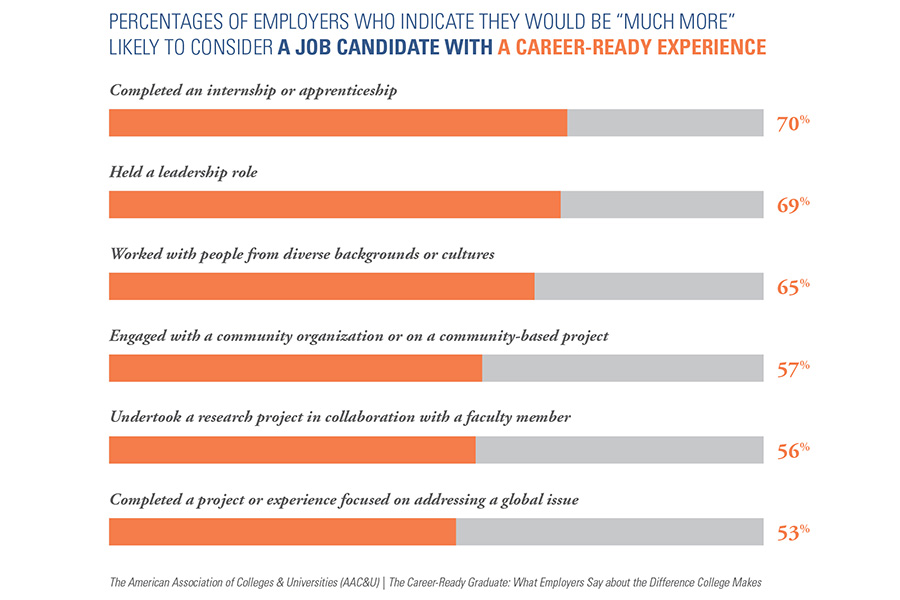
View the data in the above bar chart
How does a Career-Ready Experience enhance learning and career preparedness?
Through their Career-Ready Experience, students will connect what they learn in the classroom and across campus with the real-world environment of a professional workplace.
The Gettysburg Approach guarantees our graduates enter the working world ready for their first job and every job after, throughout the entirety of their careers. This central commitment is why Gettysburg College ranks in the top 1% nationwide among liberal arts colleges for a 40-year return on investment, according to The Georgetown University Center on Education & the Workforce ROI Study: ROI of Liberal Arts Colleges.
“By bridging the readiness gap between college and career, the Guided Pathways program extends the reach and impact of a Gettysburg education,” said Associate Provost for Academic Affairs Jeanne Hamming. “The range and number of meaningful hands-on experiences offered to our students demonstrates our commitment to students during their time on campus and well beyond.”
By Michael Vyskocil
Posted: 02/23/24
